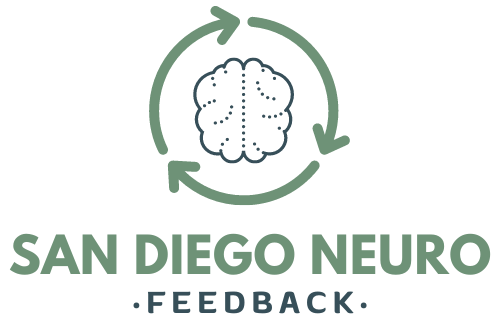Health hacks are everywhere. They’re plastered across your social media feed, paraded by influencers, and shoved into your face with promises of quick fixes and magic solutions.
But let me ask you, how many of these so-called hacks have actually worked for you? Exactly.
That’s what I thought. The truth is, most of these health hacks are just smoke and mirrors.
They don’t work, and you’re being misled into believing that they do. So, let’s call it like it is: you’re falling for nonsense, and it’s time to stop. In this article, I’m going to cut through the hype and show you what you’re really doing wrong.
Key Highlights:
- Fake health hacks are often misleading and ineffective.
- Quick fixes rarely lead to lasting results.
- Be skeptical of influencer-backed health tips.
- Science-backed methods are more reliable than internet “miracles.”
- Prioritize consistency over shortcuts in your wellness routine.
- Don’t let fear-mongering health advice dictate your choices.
The Problem with Quick-Fix Solutions: They Don’t Last

Have you ever tried one of those miracle weight loss plans that promises results in 10 days? Or how about the “get-toned-fast” exercise routine? Yeah, me too.
And I’m sure you also know how they go: you lose some weight, feel great for a week, and then it all comes crashing down when you go back to your old habits.
Here’s the deal. Quick fixes are exactly that – quick. They don’t last because they don’t focus on building sustainable habits.
Instead, they prey on your desire for instant gratification, making you think you can skip the hard work and jump straight to results.
But we both know that’s not how life works. The real magic happens when you focus on long-term health habits, not on gimmicks that promise results that just don’t stick.
Why You Should Stop Following Influencer Health Tips
Let’s talk about influencers for a second. No, not the ones posting adorable dog photos (they’re fine, carry on). I’m talking about the health influencers.
The ones pushing products they’ve never tried or endorsing a supplement with zero scientific backing. It’s like the wild west of health advice out there.
Here’s the thing: influencers don’t have a monopoly on truth. Just because someone has a million followers doesn’t mean their advice is valid.
A lot of these health hacks are just paid promotions. They’re not based on science, and they definitely aren’t tailored to your unique needs.
I know it feels tempting to follow the latest trends, but just because someone has a killer smile doesn’t mean their health advice is solid.
So, what can you do instead? Stick with professionals. Nutritionists, doctors, and physical therapists have years of education and real-world experience.
They’re not selling you a miracle product. They’re just giving you the tools to actually improve your health.
AI Content Detector: Why You Need to be Cautious of Health “Hacks” Online

Let’s face it: most of what you see online is garbage. We’re living in the age of digital misinformation, and it’s not just the headlines we need to worry about.
It’s also the content that’s crafted to appeal to you emotionally, especially when it comes to health.
Websites, social media posts, and even blogs are full of fake health hacks designed to get clicks, not to help you.
Here’s the kicker: much of that content is generated by AI. And you thought it was written by some self-proclaimed guru with all the answers, right? Nope.
Tools like the AI content detector are out there, working to expose what’s real and what’s not. You’d be surprised how much “expert advice” comes from a machine that’s just spitting out the same buzzwords over and over again. Don’t fall for it.
Stop Believing in “Detox” Drinks and Fad Diets
Let me break it to you – your body doesn’t need a juice cleanse. No, really.
Detox drinks and fad diets are a billion-dollar industry built on one simple thing: your desperation to feel good fast.
They promise to cleanse your system, burn fat, and fix all your issues in no time at all. But here’s the truth: your liver, kidneys, and digestive system are already doing a stellar job at detoxing you. They don’t need your overpriced juice cleanse.
Instead of jumping on the next detox trend, try giving your body what it actually needs: a balanced diet.
Drink water, eat vegetables, get enough protein, and let your body do what it’s meant to do. Focus on sustainable changes, not on clearing out toxins that aren’t even there in the first place.
The Problem with “Lose Weight Fast” Programs

We’ve all seen the ads: “Lose 10 pounds in a week!” “Fit into your skinny jeans in 5 days!” Yeah, right.
These programs prey on your desire for quick results and leave you with little more than disappointment.
You might drop a few pounds in the short term, but trust me, it’s not sustainable. In fact, most of the weight you lose from these quick fixes is water weight or muscle mass – not fat.
So, what should you do instead? Slow and steady wins the race. Focus on making gradual, realistic changes to your diet and exercise routine.
Aim for a consistent routine that you can stick to for the long term, and don’t expect overnight miracles. If you’re in it for the long haul, you’ll see real, lasting results.
“Eat Everything in Moderation” Myth Needs to Go
We’ve all heard it: “Eat everything in moderation,” right? It sounds like a golden rule that everyone agrees on, but let’s unpack that for a second.
Moderation means different things to different people. For some, moderation means having a handful of chips with lunch. For others, it means eating an entire pizza and calling it “moderate.” It’s just not a helpful rule.
Instead of clinging to vague advice, focus on balance. You can have your treats, but they shouldn’t make up the majority of your diet.
The trick is finding the right balance for you. That doesn’t mean eating everything in moderation; it means understanding what your body needs and fueling it with nutrient-dense foods. Simple as that.
Tips for Evaluating Health Advice
Next time you come across a health hack or “miracle cure,” ask yourself a few simple questions. It’ll help you filter out the nonsense and save you time, money, and a whole lot of frustration.
- Who’s the source? Is it a celebrity endorsing a product, or a real expert with credentials?
- Is there science to back it up? If not, move on.
- Does it sound too good to be true? Spoiler alert: if it does, it probably is.
- How long will it take to see results? Quick fixes are a red flag. Be skeptical.
- Is it a sustainable lifestyle change, or just a one-time solution? Look for lasting habits, not quick fixes.
By asking these questions, you’ll avoid wasting your time and money on products and advice that don’t work.
How to Break Free from the Cycle of Fake Health Hacks

I know how hard it is. Every day, you’re bombarded with advice, trends, and products promising to solve all your health problems in a snap.
It’s easy to feel like you’re missing out or that everyone else has figured it out except you. But the truth is, real health comes from consistency and building habits that work for you – not from jumping on every new trend that comes along.
So, how do you break free from this cycle? Start by being skeptical. Question everything you read and hear. Follow experts, not influencers.
Focus on the basics: eating whole foods, staying active, and getting enough sleep. And when in doubt, ask a professional. Stop wasting your time chasing shortcuts, and focus on what really works.
Final Thoughts
In the world of health advice, it’s easy to get lost in the noise. But if you want to stop falling for fake health hacks, it’s time to turn down the volume and focus on what actually works. Be skeptical. Trust experts. Ditch the shortcuts and embrace habits that will actually improve your well-being.
Let’s be real – if it sounds too good to be true, it probably is. So, stop wasting your time, energy, and money on things that don’t work. Instead, build a healthy lifestyle that’s grounded in science, consistency, and real results.
Are you ready to stop falling for fake health hacks? The first step is to start thinking critically and make smarter choices about your health. Your future self will thank you.

